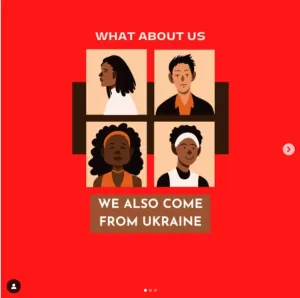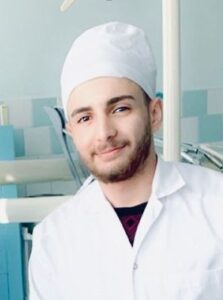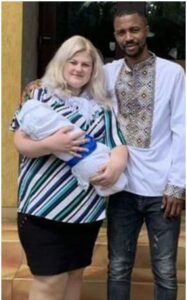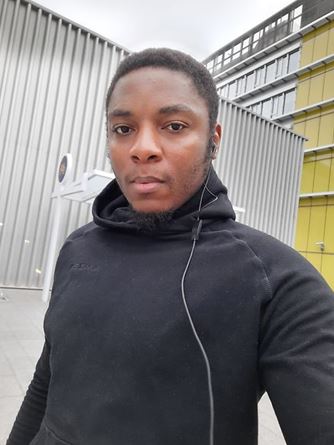Dur destin pour les étudiants africains réfugiés d’Ukraine

Yannick LAMBERT; luxtimes.lu – 22/08/2022



Tough fate for African student refugees from Ukraine
Dozens of Africans and students fleeing the war in Ukraine are struggling to receive legal protection in Luxembourg, where protracted and complex procedures often lead them to try their luck elsewhere in Europe.
Soufiane Bouirig – a 24 year-old Moroccan dentistry student from Ukraine – sought shelter in Luxembourg right after the start of the war, thinking it would be easy to get around here because he speaks French.
But the Grand Duchy denied him the temporary protection status that the EU provides to war refugees, and he has now moved to Portugal where he did get the status, and is about to start work as a dentist’s assistant.
“I was so fed up, I did not want to appeal”, Bouirig – a speaker of Russian and Ukrainian – said in an interview. He still wants to return to Poltava, the eastern Ukrainian city where he studied, because he felt most at home there.
Appealing the decision in Luxembourg would have meant a wait of at least three months, he said, spent in different refugee lodgings across the country.
The EU allows war refugees from Ukraine to work and go to school. Those who do not have Ukrainian citizenship “will only fall under the regime of temporary protection if they cannot return under durable and in safe conditions to their home country”, a foreign ministry spokesman said in July.
In Luxembourg, people from Africa and other countries outside Ukraine stand a far bigger chance of hearing no. By the end of June, Luxembourg had denied protection to 108 people. Of those, 25 were Nigerian, 13 were Cameroonian, 12 Moroccan, and another 41 from other third-party countries.
That stands in stark contrast to 97% of people who had received the temporary protection by the end of July, out of a total of 4,563 refugees.
Refugees are called to a meeting for a first interview, and a second time if there are issues. They can appeal a refusal of their application, but that does not give them the right to stay in Luxembourg as they await the outcome.
The rules give Luxembourg a lot of room for manoeuvre in deciding whom can stay and who cannot. It is unclear what counts as “durable and safe conditions”, Luxembourg human
rights lawyer Frank Wies said, and while the European Commission has given its view on how to interpret the expression, that recommendation is not binding in Luxembourg courts.
One African student had sold everything to fund their studies and all other ties to his home country had stopped when their grandmother died. The case went to court in Luxembourg, where the student was told that if “you can go to Ukraine all by yourself, you can also [go back to] your home country.”
Afghans and Syrians from Ukraine do tend to get the temporary protection more easily because of the violence in those countries, Wies said.
You need to fight
Kevin Nguefack Tonleu is a 28-year old Cameroonian who studied IT in Kharkiv before the war. He came to Luxembourg on 29 March, where he had to wait until early June for an interview with the immigration office.
Luxembourg refused his application and he had to leave the country while he appealed the decision. Nguefack Tonleu is now in Germany, but it “was easier in Luxembourg, because I speak French and English”. Keen to continue his studies in the Grand Duchy, he is waiting to hear back from the university.
“You need to fight to get the protection status, you need to do everything within your possibility”, said Jean-Badell Tchapda, a 29-year old Camerounian student who fled from beleaguered Kharkiv. Having received protection status in Luxembourg with the help of a lawyer, he is now looking to get a job.
One thing that makes it harder for students is that the EU policy is aimed at refugees with permanent residence in Ukraine, Wies said, which many foreign students don’t – even if Luxembourg tends to be generous in its interpretation of the rules by looking at all residence permits, lawyer Wies.
Procedures can also be long for the 5,000 Ukrainians that have come to Luxembourg given that the immigration offices are overwhelmed and lodging facilities are nearly full. But almost all receive the protection status.
Wies knows of one Ukrainian who did not get through. Originally from Syria, this person had received refugee status in Austria. He then moved to Ukraine where he swapped his passport for Ukrainian papers.
in Ukraine Mohamed Lamine Bakayako, a 32-year old Ivorian, fled Lviv region where he is a permanent resident, he said. He left his Ukrainian wife behind, who wanted to stay close to her family, some of whom were fighting in the war – only to find Luxembourg denied him protection status.
“The whole thing is a bit strange”, Bakayoko said. He had brought a copy of his wife’s passport and his marriage certificate, but unlike other foreigners who fled Ukraine – some who “weren’t even married” and only came with their girlfriends – Luxembourg would not let him stay.
“The procedure had to be improvised because things had to move quickly,”


